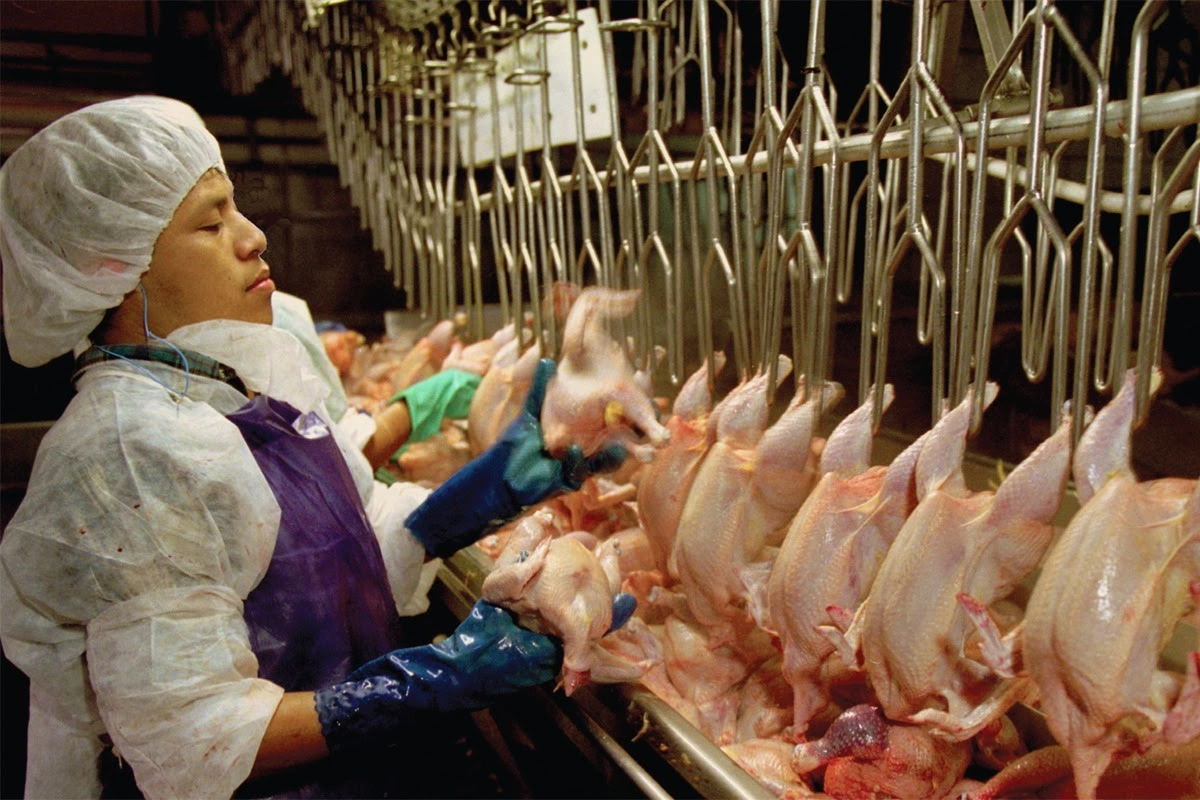
Meatpacking Worker Injuries on the Rise – Immigration Status Hinders Reporting
Posted on August 31, 2024
As Labor Day approaches, consider the harm your food may be costing some workers
Washington, DC – August 27, 2024 – The meat on your plate might be costing workers an arm and a leg – literally. In 2022 alone, 26,600 injuries were reported in meat and poultry plants — an injury rate nearly double that of all other industries, according to a report by MD nonprofit Climate Diet.
Every day, U.S. workers face amputations or hospitalizations in the meatpacking industry, according to OSHA data from 29 states. “Meat and poultry plants remain among the most dangerous workplaces in the country,” Executive Director of Climate Diet Jane DeMarines said.
Why Poor Working Conditions Are Widely Underreported
The Climate Diet report also highlights the alarming safety risks faced by those who process our food, which statistically is worse than that of other industries.
However, many incidents remain unreported due to a large number of Agriculture Has Been Named the Deadliest Industry
A recent Penn State study revealed that the agricultural sector may be even more dangerous than we think, naming it the deadliest industry in the U.S. Over a five-year period, 62,079 farm workers —many of them youth— were treated for injuries, though this is likely a severe undercount.
Long hours, rapid work pace, and hazardous machinery make these jobs especially risky. “The combination of thin profit margins and relentless pace creates a deadly situation,” the report warns.
Taking Action On Environmental Impact
Beyond the human toll, meat production also exacts a heavy environmental cost. A shift to plant-rich diets could prevent the release of over 100 gigatons of greenhouse gasses by 2050, according to a report by The Washington Post. Climate Diet suggests that if everyone in the U.S. gave up meat just one day a week for a year, it would be like taking 25 million gas-powered cars off the road.
“Improving worker safety and reducing our meat consumption are important steps toward a more sustainable and just food system,” says DeMarines.

